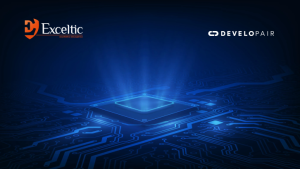"Today's technology needs not only the best talent but also data, lots of data."Javier Pastor, TIC writer.
What is "data"? Data are dataThe data are information and information is knowledge, an indispensable privilege for the internal growth of any company. For the management of these elements, various professionals are usually called upon, among which we can highlight the figure of the "Data Scientist".
Considered one of the most attractive professions of this century, a data scientist is the expert in collecting, extracting, filtering and processing disorganised and unstructured information, with a strong business acumen.
- Extraction: collects data from various sources and analyses it, obtaining as much information as possible.
- Cleaning: eliminates excess, processing, normalising values and transforming variables.
- Processing: using statistics, the information is processed until the most influential is collected. After this process and using mathematics, predictive methods.
- Visualisation: presents the results in a comprehensible and visual way.
Depending on the company you work for, you may have a variety of roles. Among all of them, there is one that is always common: cleaning and cleansing data to remove irrelevant information.
The information gathered by these professionals is invaluable to organisations, providing them with the opportunity to make relevant decisions and prevent risks based on past experience.
PROFILE
It is someone "who is better at statistics than any programmer, and a better programmer than any statistician." (Josh Wills).
This is a profile that did not exist long ago and for which there is currently a great demand. Although it is not yet a certified profession, highly qualified profiles are sought, capable of dealing with any problem in terms of data exploitation, but also able to cover all the necessary management stages.
A good data scientist has a multidisciplinary profile and with knowledge in various scientific areas, but one of the bases of their work must be programming languages. In programming, the choice of which language to learn is always complicated, but the most used or requested in this type of job offers are: SQL, Python and C.
In addition, a number of additional skills related to the understanding and mastery, theoretical and practical, of areas such as Machine Learning and Deep Leaning, as well as statistical research tools, data visualisation, predictive analytics, or Big Data.
SKILLS
As mentioned above, the Data Scientist has a detailed knowledge of all the data he/she works with, its different types and its life cycle. He/she captures, transforms and represents them in a visual and understandable way, eliminating any remaining data, and therefore must possess the following skills:
- Data compression.
- Problem identification.
- Problem identification.
- Communication and critical thinking skills.
- Good planning and delegation skills.
CAREER OPPORTUNITIES
Data scientists can work in any field, as they operate at many levels, but there seems to be a tendency for their demand to increase as technologies advance.






